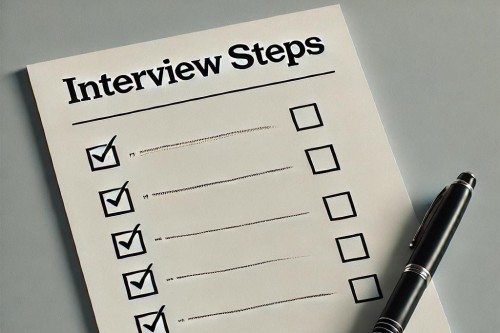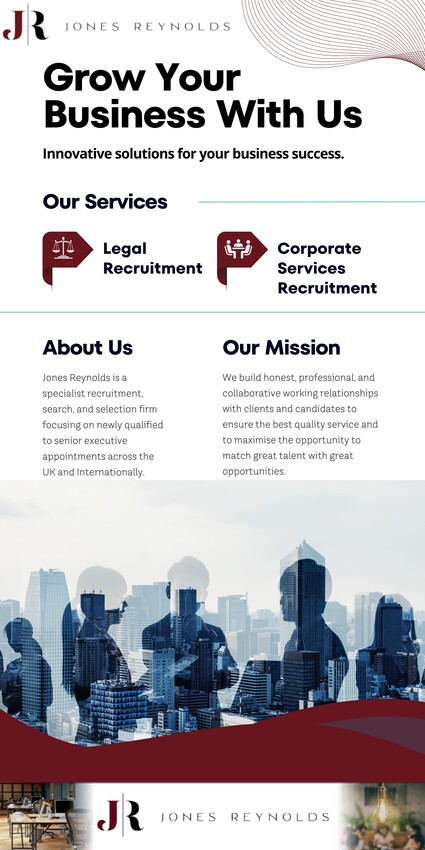JR on: Mastering Job Interview Preparation

posted 29th July 2024
Mastering Job Interview Preparation: A Brief Guide
Interviewing for a job, especially one you are genuinely passionate about, can be an understandably nerve-wracking experience. However, it's essential to recognise that an interview is a reciprocal process. Both the employer and the candidate are assessing the potential fit. Adopting this mindset can alleviate stress and foster a more productive and collaborative conversation. This comprehensive guide outlines the steps to prepare effectively for your next job interview.
1. Embrace the Reciprocal Nature of Interviews
Understanding that interviews are mutual evaluations can significantly reduce pressure. While you need to effectively present your qualifications and enthusiasm, it's equally important to assess if the company aligns with your career goals and values. This balanced approach can facilitate a more relaxed and genuine dialogue, benefiting both you and the interviewer.
In deciding whether a company is a good fit for you initially, consider websites like Glassdoor to discover expected incomes and views on the CEO, alongside the culture and progression.
2. Utilise Your Recruiter's Expertise
If you are working with a recruiter, leverage their expertise. A proficient recruiter should offer a preparatory call to assist you in getting ready for the interview. If this is not offered, request one proactively. Recruiters often possess insider knowledge about the company and role, the hiring manage and the team, expediting your preparation. They might also provide valuable resources such as articles, insights on company culture, and dress code guidelines. This feedback and communication should be offered throughout the process.
3. Thoroughly Review Your CV
Being intimately familiar with your CV is fundamental. Review your experiences and accomplishments to ensure you can discuss them confidently and concisely. A chronologically organised CV helps both you and the interviewer follow your career progression effortlessly. Please see CV guide. Avoid unnecessary surprises by being prepared to elaborate on any point listed on your CV.
4. Analyse the Job Description
Comprehensively understanding the job description is crucial. If the role involves interaction with other departments, investigate their functions and the roles within them. LinkedIn can be a useful tool for this research. Knowing how your potential role integrates into the broader organisation demonstrates thoroughness and genuine interest.
5. Conduct In-Depth Company Research
Stay informed about recent developments within the company. Press releases on their website and external articles can provide valuable context. Websites like CrunchBase offer comprehensive data, including financials, acquisitions, and notable personnel changes. LinkedIn company pages will provide additional insight. This knowledge will enable you to ask informed questions and demonstrate your genuine interest in the company.
If you happen to be supporting other teams, look at their vacancies to see if they are hiring for those positions. If so, look at the job descriptions to see what the expectations might be of these roles. LinkedIn would be another place to look up various individuals you might be working with closely.
6. Facilitate a Dynamic Conversation
Recognize that many interviewers may not particularly enjoy conducting interviews. Strive to ease the process by actively participating in the conversation. Listen attentively, ask insightful questions, and provide thoughtful answers with relevant examples. A dynamic exchange where both parties engage meaningfully can leave a lasting positive impression.
If you are specifically proud of an accomplishment or an area in which you feel especially confident, It would be advisable to allude to via examples, or direct the natural flow of conversation towards this topic in the hopes that the direction will head in your favour. However, also realise that the interviewer may also have specific questions that they want to ask so this must be done tactfully and within the scope of conversation. Do not randomly change topic.
7. Prepare with Common Interview Questions
Research common interview questions and formulate your responses. Many interviewers use similar questions to evaluate candidates, so practicing your answers can give you a significant advantage. Numerous online resources can aid in your preparation.
8. Ask Insightful, Open-Ended Questions
When given the opportunity to ask questions, opt for open-ended ones. This approach can provide deeper insights into the role and the company's culture. Consider the following questions:
- Where do you need the most support in the department?
- What are your expectations for the first six months?
- What challenges are currently being faced?
- Can you describe the team I will be working with?
- What skills and experience are you seeking in the ideal candidate?
- What have you enjoyed about working here?
- Is there any additional information I can provide at this stage?
- What are the next steps in the process?
These questions not only offer you a clearer picture of the job but also allow you to tailor your following responses and match up to what they suggest they are looking for, demonstrating that you have listened ,understood the company's needs, and positioned yourself as a suitable prospect.
9. The follow-up
If you are using a recruiter, they should take feedback from you and then get in touch directly with the interviewer to relay. If this is a direct application, sometimes the interviewer might leave a contact email in case you have any further questions. This is a prime opportunity to write a brief email thanking them for their time, restate your interest in the position and let them know you look forward to future communications. Allow a couple of days between the interview and the email, and research a good follow-up email example in addition to reviewing for correct punctuation and grammar.
Effective interview preparation requires a blend of self-awareness, thorough research, and strategic questioning. By understanding your own experiences, thoroughly researching the role and the company, and engaging actively during the interview, you can present yourself as a well-prepared and enthusiastic candidate. Remember, the interview is not solely about them selecting you—it's also about you selecting them. Approach it with confidence and curiosity, and you will be well on your way to securing the right fit for your career.




